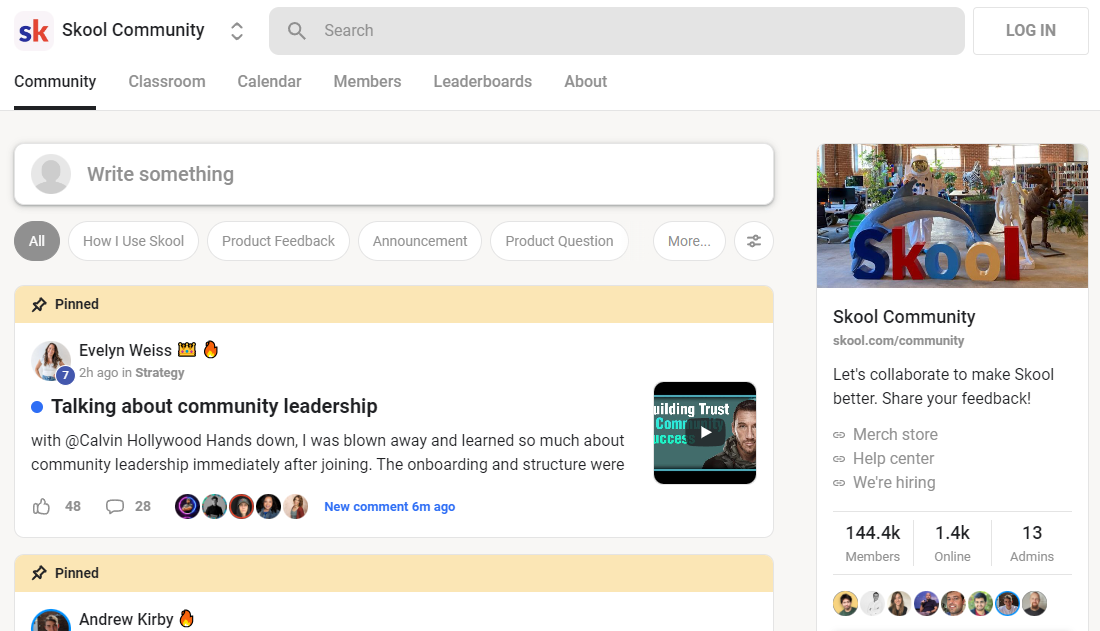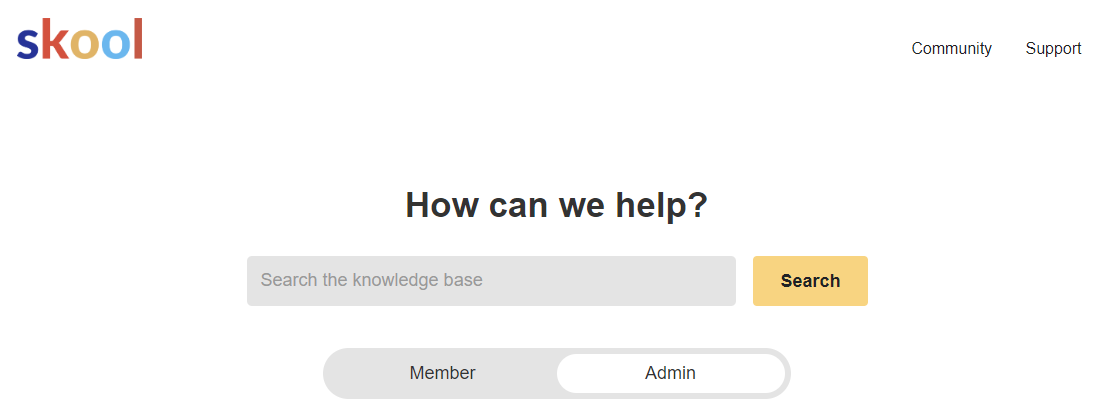Skool offers best-in-class gamification attributes that increase engagement. For instance, members can earn degrees based on their participation, which open course content and other incentives that better inspire them.
Previously, designers needed to utilize different tools for holding programs, constructing communities and handling email advertising. This created a disjointed experience for both makers and their audiences.
Creating Courses
Skool has a basic, straightforward user interface and focuses on community building and training course hosting over various other features. It enables developers to produce a lively neighborhood for their programs and coaching programs by attaching them with the best audience. This likewise helps them keep an eye on the health and wellness of their material business with the help of an easy dashboard.

To start, an individual can sign up for a cost-free 14-day test of Skool. Afterwards, they can pay $99 a month for the system to hold a single community. There are no other pricing options readily available for the moment. Skool also processes payment and pays makers weekly, but it does charge a 2.9% purchase charge.
One of the one-of-a-kind facets of Skool is that it can be made use of to produce interactive training courses. These can include live webinars, group tasks and real-time conversations. These types of courses encourage engagement and increase course completion prices. Furthermore, Skool’s gamification attributes aid to urge community involvement. For example, members can earn points and unlock course web content when they get to specific degrees in the community.
Customers can also make use of the social prey on Skool to publish updates and engage with others in the area. The feed looks like a Facebook team, yet with an extra controlled method of posting. This aids to stay clear of the kind of spam and misuse that occurs on various other social systems.
Managing Communities
Skool is an extremely easy system to use, for both participants and admins. Its simplicity is just one of its primary selling points– when a person joins your community they will not be confronted with a bunch of options or attributes that can derail their experience and puzzle them.
The platform starts as a private group by default, yet you can easily alter this to open up your neighborhood to any person that you want to belong to it. When you’ve done this you’ll see a social feed like you would on Facebook Groups or WhatsApp (however without all the scam things and swearing).
You can additionally add a class tab to your neighborhood that you can utilize to share educational material with your members. This function is particularly useful for communities that are concentrated on discovering or specialist development as it helps to develop an educational structure and makes it simple for members to track their progression. In addition, the platform has gamification aspects that enable members to make points by liking articles or comments. When they get to a specific level they can unlock sources, such as programs, even more driving interaction.
The various other cool thing is that Skool has a mobile application, much like Mighty Networks or Slack, so members can stay on par with your area and connect on the go. This is a wonderful means to encourage and involve your participants and to help them obtain support from each other when they require it, instead of simply turning to you for answers.
Skool Webhook
Skool focuses on gamification, enabling users to gain points and badges for their payments. This inspires participants to involve with the community and contribute to discussions. Subsequently, this helps them level up and unlock benefits like videos and various other web content. Admins can additionally establish courses to be unlocked at particular degrees to further drive interaction.

The Skool user interface is spick-and-span and user-friendly. Its highlights consist of the Community tab, which looks similar to a Facebook group feed. Right here, users can publish comments and text as well as upload photos, web links and video clips. Participants can likewise see each others accounts and get in touch with them. Additionally, individuals can create exclusive teams in the community to talk about certain topics.
Another attribute of Skool is the Classroom tab, which resembles a YouTube livestream or Zoom meeting. Using this, managers can hold trainings and webinars for their pupils. They can likewise add occasions in the schedule to remain updated on upcoming occasions and Skool Webhook.
Nevertheless, some facets of Skool could utilize improvement. As an example, the platform isn’t adaptable when it concerns money making as customers can not provide numerous pricing tiers for their training courses and area memberships. Furthermore, the tool lacks an email advertising and marketing feature, which may be a deal breaker for some course designers. It also does not have native video organizing, suggesting that individuals require to make use of exterior systems like YouTube, Loom and Vimeo for their videos.
Including Content
The process for including web content and engaging with members on Skool is easy and simple. Admins can create blog posts with message, GIFs, video clips and surveys. They can additionally add event calendars to inform neighborhood members of upcoming group Zoom calls or live streams. Additionally, they can utilize Skool’s email program feature to send a message to the whole community with a solitary click. This gets rid of the requirement for labeling and listing division, which can be cumbersome.
Moreover, Skool’s gamification attributes can increase interaction and customer retention. It motivates participants to engage with the content often by rewarding them with different benefits. These consist of opening course material, making points and gaining a spot on area leaderboards.
While Skool provides a host of valuable attributes for developing and delivering on-line courses, it’s not for everybody. The system is best for coaches, specialists and various other details business owners. However, the cost can be an obstacle for some people looking to monetize their online content.
Additionally, the absence of basic tiers and a brief free trial may be a deterrent for numerous. Furthermore, the platform’s laser-focus on eLearning can make it much less desirable for individuals that wish to market other digital items. Nevertheless, despite these drawbacks, Skool Webhook is still a sensible choice for any person aiming to develop and generate income from online training courses.